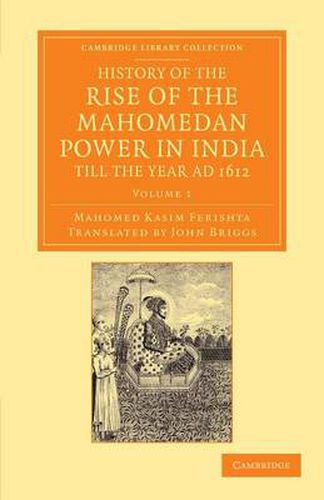Readings Newsletter
Become a Readings Member to make your shopping experience even easier.
Sign in or sign up for free!
You’re not far away from qualifying for FREE standard shipping within Australia
You’ve qualified for FREE standard shipping within Australia
The cart is loading…






The Persian chronicler Ferishta (1560-1620) composed his great work, published in this four-volume English translation in 1829, at the court of Bijapur - where he spent most of his life - under the patronage of King Ibrahim Adil Shah II. It covers Muslim India from around 975 to 1612 and is notable for its balance, despite Ferishta’s close involvement with some of the events and people he records. In the translator’s preface, East India Company officer John Briggs (1785-1875) highlights the danger of misconceptions about the people of India and the importance of religious policy in the success or failure of her various governments. Volume 1 includes introductory matter, a chapter on pre-Muslim India, histories of the Ghaznavid kings of Lahore, and information on the rulers of Delhi. Also included is Briggs’ valuable comparative chronology of events in Europe and India.
$9.00 standard shipping within Australia
FREE standard shipping within Australia for orders over $100.00
Express & International shipping calculated at checkout
The Persian chronicler Ferishta (1560-1620) composed his great work, published in this four-volume English translation in 1829, at the court of Bijapur - where he spent most of his life - under the patronage of King Ibrahim Adil Shah II. It covers Muslim India from around 975 to 1612 and is notable for its balance, despite Ferishta’s close involvement with some of the events and people he records. In the translator’s preface, East India Company officer John Briggs (1785-1875) highlights the danger of misconceptions about the people of India and the importance of religious policy in the success or failure of her various governments. Volume 1 includes introductory matter, a chapter on pre-Muslim India, histories of the Ghaznavid kings of Lahore, and information on the rulers of Delhi. Also included is Briggs’ valuable comparative chronology of events in Europe and India.